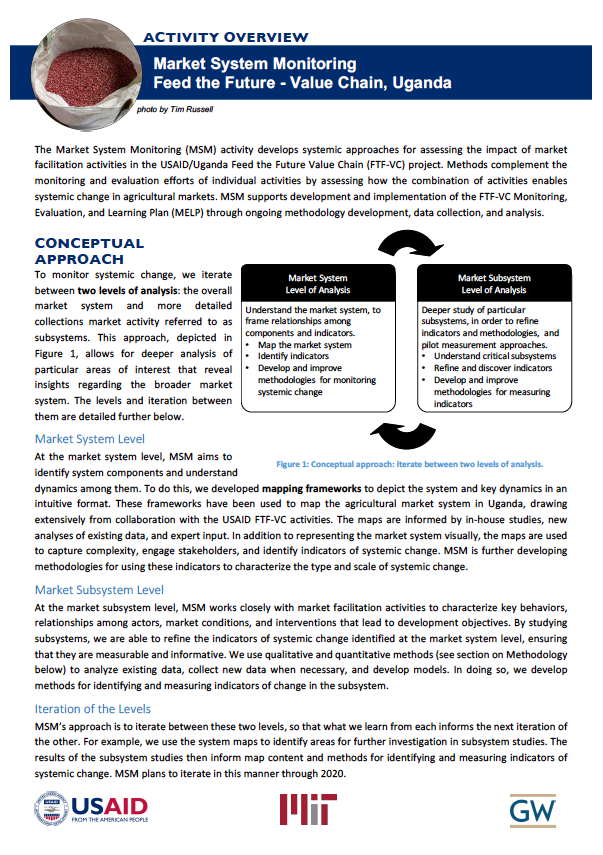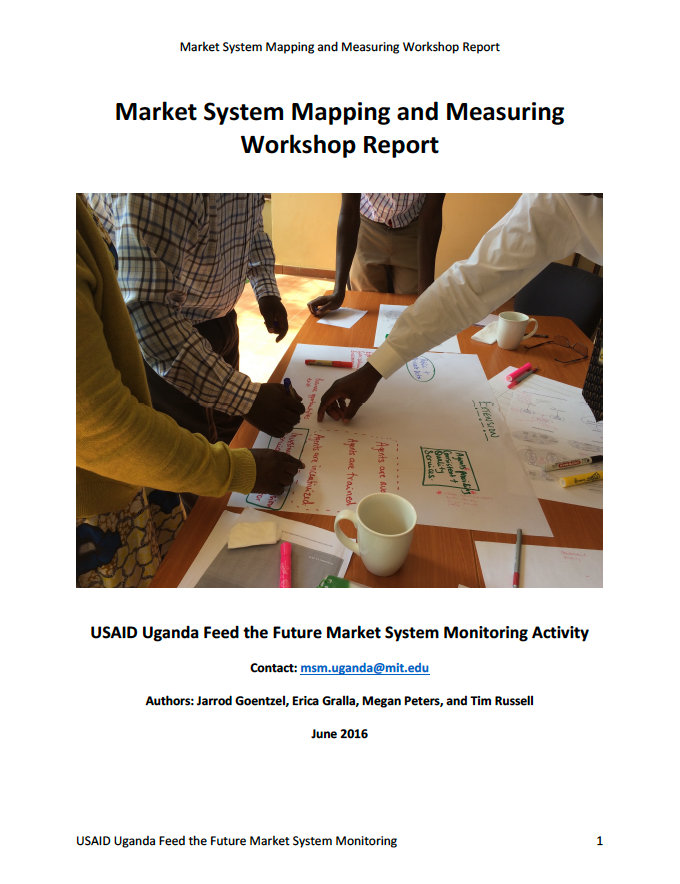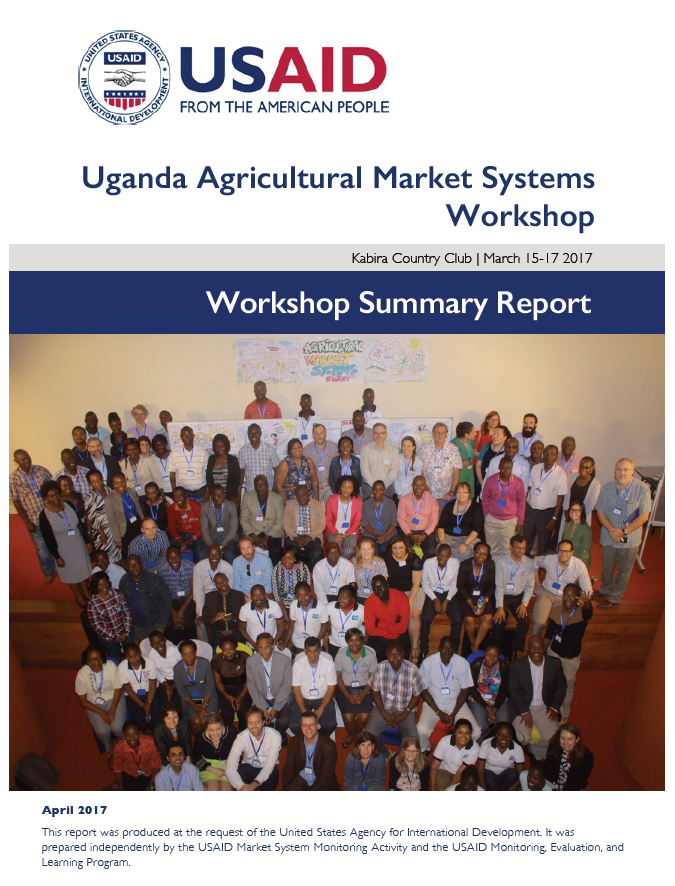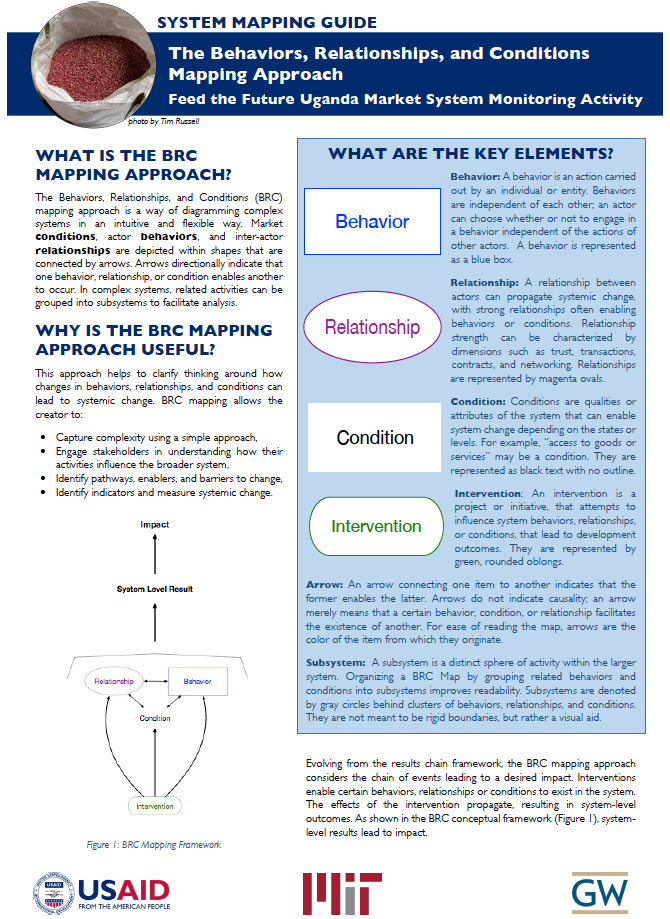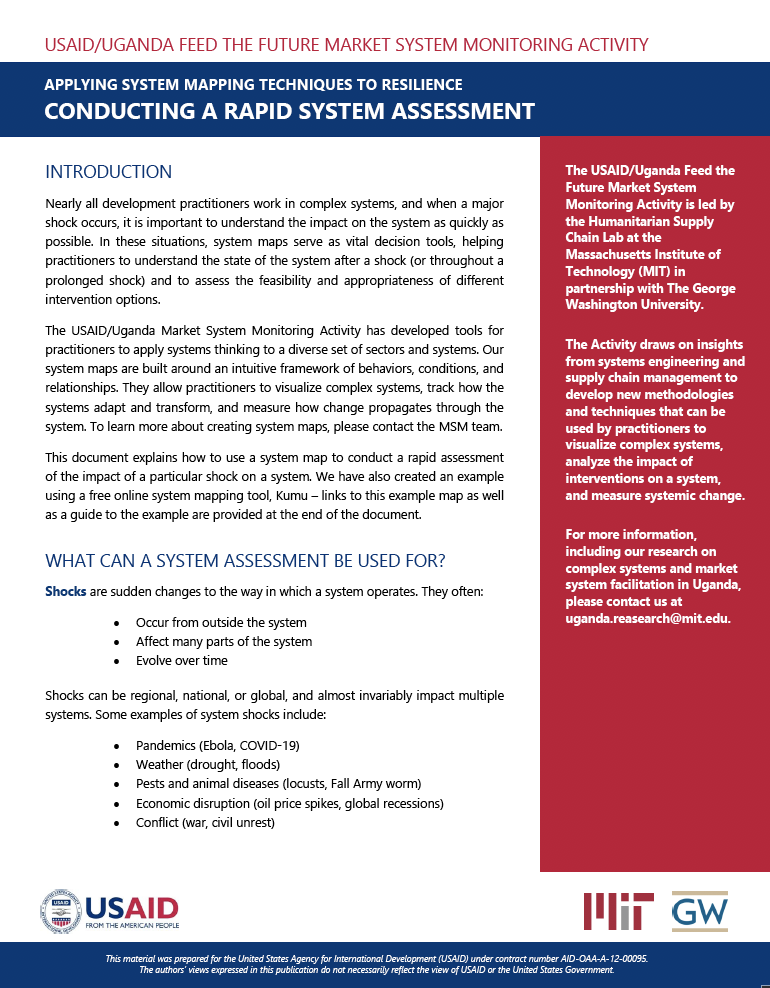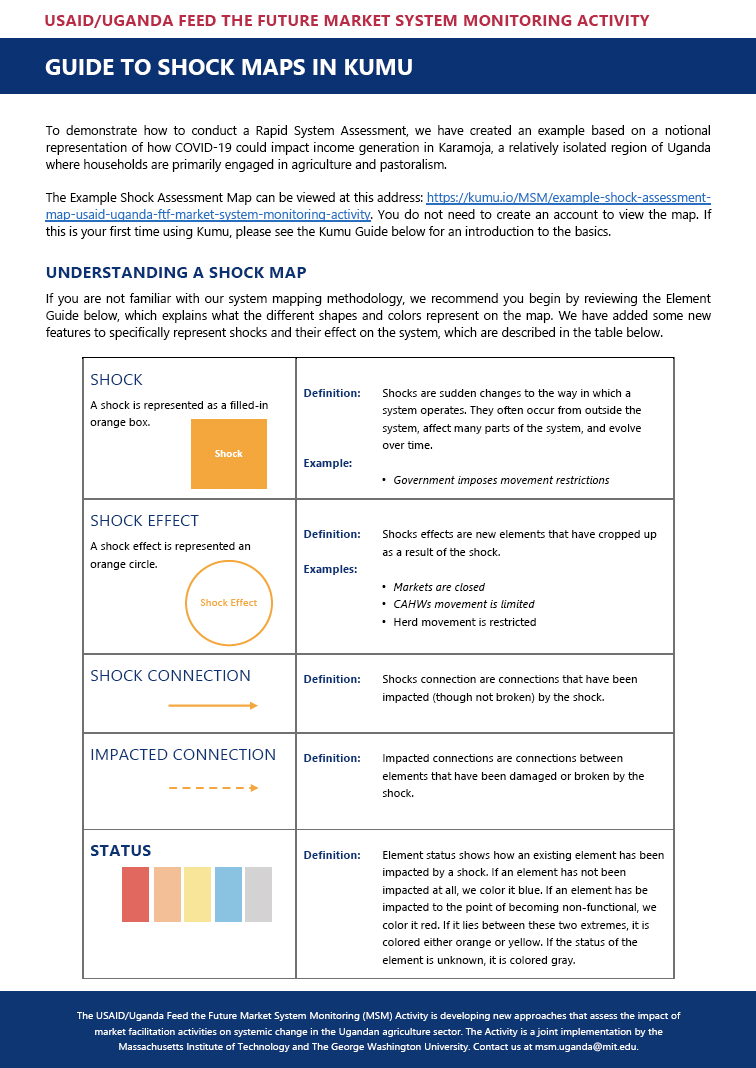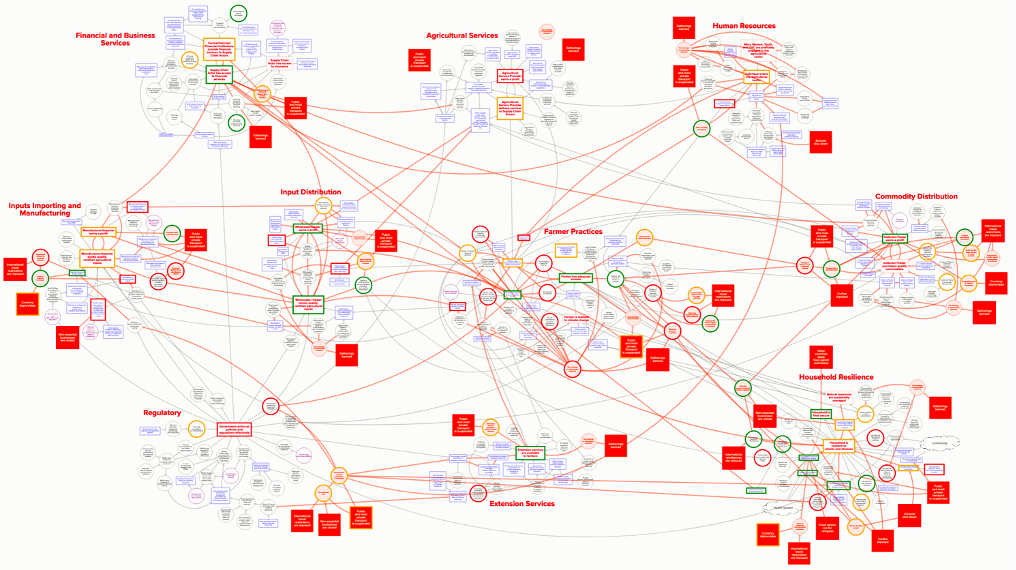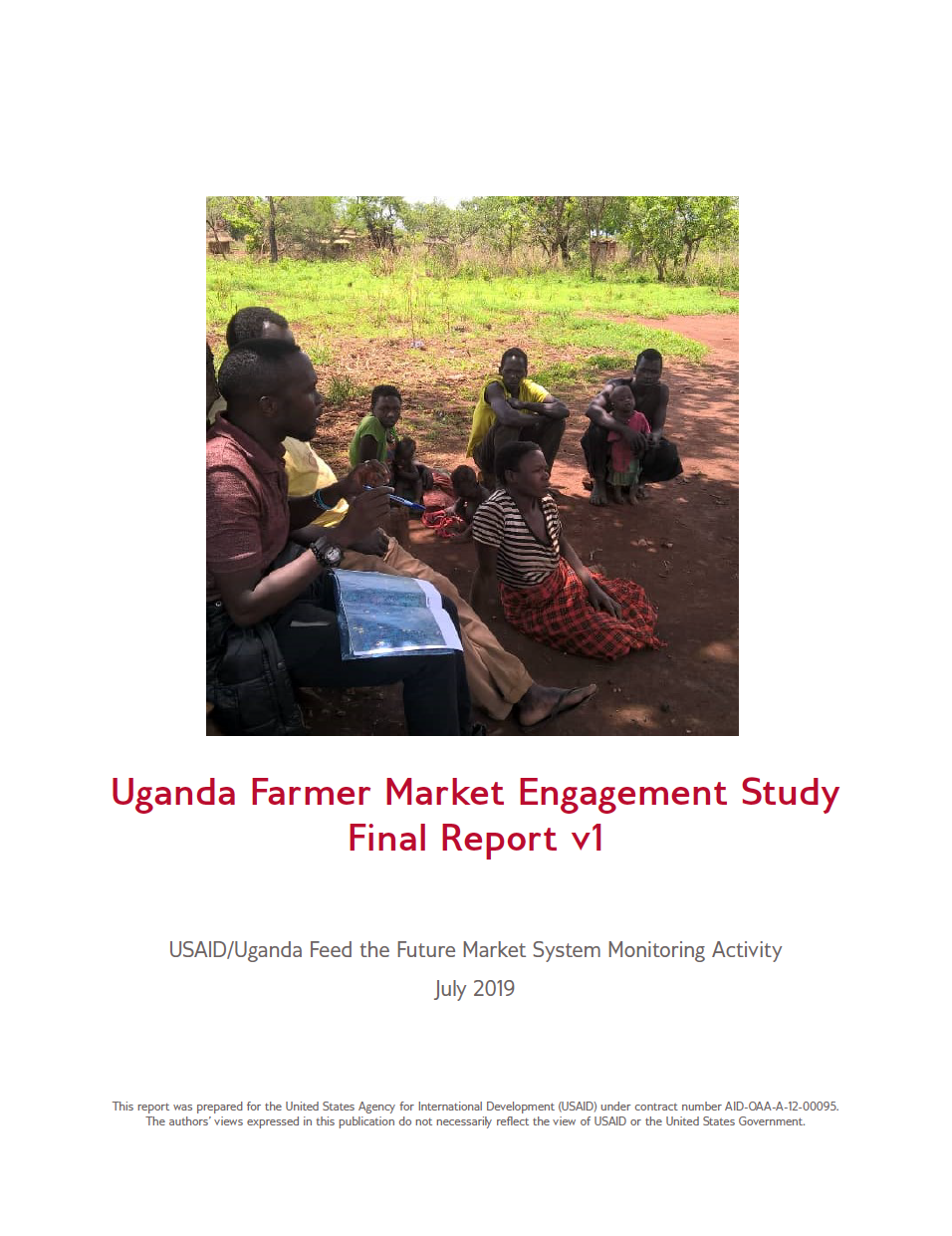Market Systems Monitoring Activity
Feed the Future
Project Summaries
Research Team
Project Archives
Contact Us
Project Overview
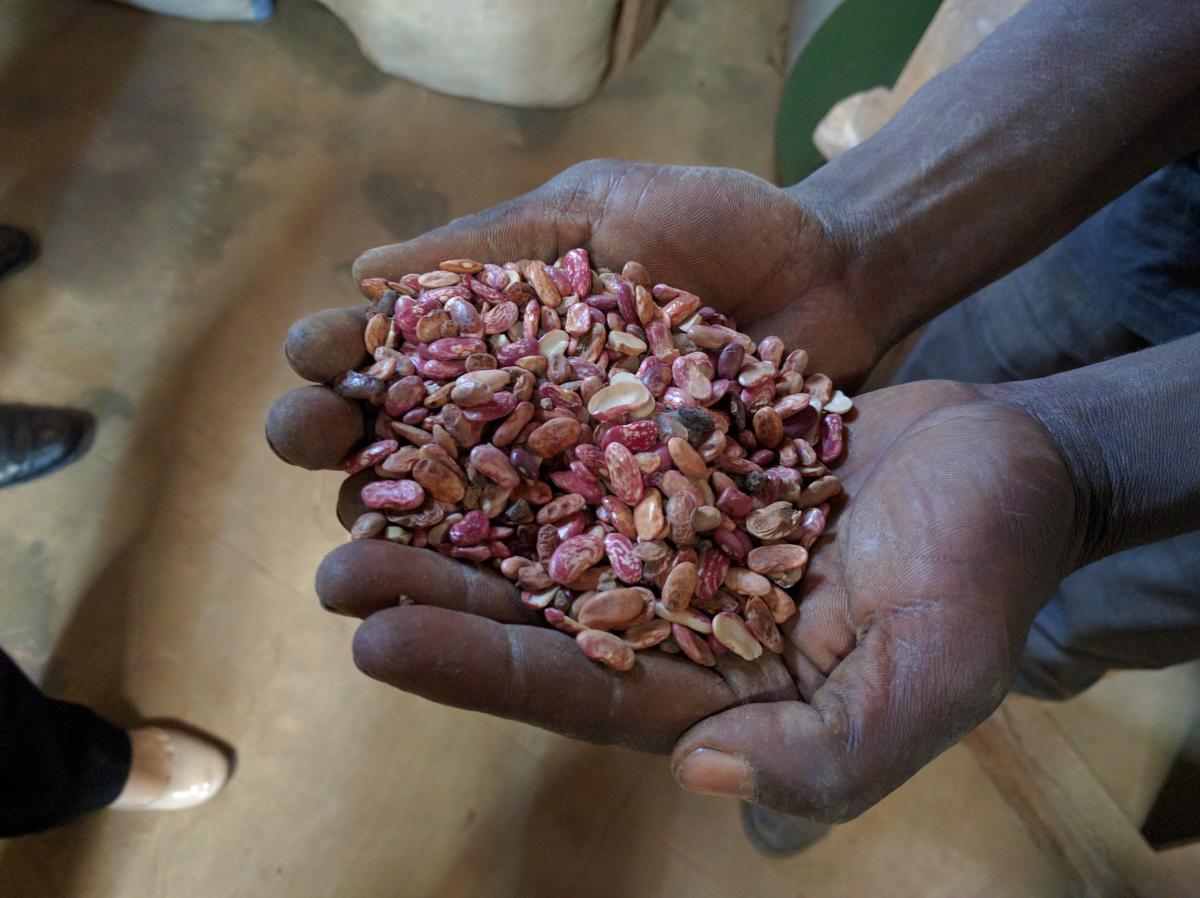
The USAID/Uganda Feed the Future Market System Monitoring Activity (MSM) applies principles from systems engineering and supply chain management to develop methodologies and tools that can be used to assess the impact of market facilitation activities. The Activity is implemented by the Humanitarian Supply Chain Lab at the Massachusetts Institute of Technology (MIT) in partnership with The George Washington University (GW). This project is supported via a buy-in from USAID/Uganda through the Higher Education Solutions Network (HESN) Cooperative Agreement with MIT’s Comprehensive Initiative on Technology Evaluation (CITE) at MIT D-Lab.
Our Objective
Enable USAID and its implementing partners to understand, monitor, and adapt to system change by developing new tools and approaches based on cutting-edge techniques from academia and the private sector.
Our Approach:
- Create tools and methodologies that can be applied across the USAID Program Cycle.
- Conduct deep-dive studies into different sectors of the Ugandan market system in order to build the evidence base for learning, adaptation, and investment decisions.
- Foster collaboration and learning through workshops and stakeholder engagement.
- Consult with implementing partners and other stakeholders on applying systems thinking to specific challenges or contexts.
Why systems thinking?
Systems thinking enables effective monitoring, evaluation, learning, planning, and adaptation for market interventions. System mapping allows diverse stakeholders to build a common understanding of the complex system they seek to change, through a clear and consistent visual representation. Analyzing the system map enables identification of interactions among various actors’ work, and barriers, gaps, and opportunities for facilitating positive change. Using a system map and systems thinking, indicators can be defined to monitor change in the system, building data collection to assess system health.
By monitoring these indicators of systemic change, market system interventions can be adapted: the system map facilitates identification of key barriers to be worked on or alternative paths to enable an outcome.
Our Methodologies
Our team has developed two flagship methodologies for practitioners to learn and apply: the Systems Pathways Mapping Toolkit and the Systems Pathways Measurement Toolkit.
The Systems Pathways Mapping Toolkit allows stakeholders to develop and engage a common view of the system and enables analysis of the many interconnecting pathways to system change. The Toolkit supports the development of a system map that depicts key features of a market system, including key outcomes, behaviors, relationships, conditions (including incentives), and interventions, and shows how they enable (or inhibit) each other within the context of the broader system. After a system map has been created, key development pathways (similar to results chains but more flexible) are identified, to support analysis of leverage points, monitoring approaches, and other issues. We facilitate workshops using this toolkit to help organizations better understand how their results chains interact with the broader system.
The Systems Pathways Measurement Toolkit uses a system map as a basis to identify and evaluate indicators of systemic change, enabling the assessment of system health, diagnosis of barriers to change, and identification of positive spillover effects. The Toolkit contains an iterative cycle of steps to identify, measure, and interpret indicators throughout the system that enables learning and further adaptation of measurement approaches. The toolkit enables interpretation at multiple system levels to assess the health of behavior changes, relationships or conditions, pathways, subsystems, and/or the system. We facilitate workshops using this toolkit to identify and measure diagnostic and outcome systemic change indicators.
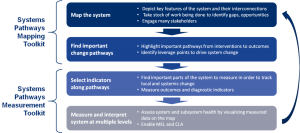
We have identified a variety of use cases for these toolkits, including:
- Understanding a complex system with many stakeholders
- Taking stock of data, gaps, opportunities, and challenges within a system
- Identifying pathways to change and interactions between interventions
- Developing a Results Framework, Project Appraisal Document (PAD), or Program Description (PD)
- Developing a Performance Management Plan or a Project Monitoring, Evaluation & Learning Plan
- Collaboration, Learning, and Adaption (CLA)
Research Studies
Our team has used various qualitative and quantitative techniques to collect and analyze data on the Ugandan agricultural market system, including system dynamics simulation models, surveys, interviews, social network analysis, and statistical modeling and analysis. Our deep-dive studies have focused on building an evidence base on several sectors and issues: the inputs sector with a particular focus on the availability of quality products, quality differentiated pricing for farmer products, smallholder farmer market engagement, value-chain relationships, and agricultural finance. Our research publications and briefings are available to the public and form an important component of our technical and consultative work.
Current Papers, Data & Summaries
Research Team

Jarrod Goentzel
Research Lead

Erica Gralla
Research Lead

Courtney Blair
Research Consultant

Tim Russell
Research Engineer

Tristan Downing
Research Assistant

Megan Peters
Research Assistant

Finley Wetmore
Research Assistant

Katie Picchione
Research Assistant

Micaela Wiseman
Research Assistant
Contact Us
If you are interested in learning more, please reach out to our team at msm.uganda@mit.edu

